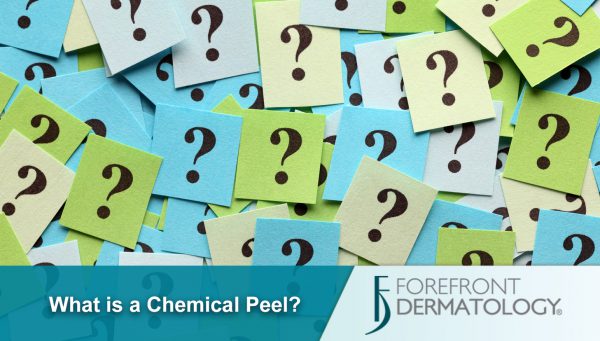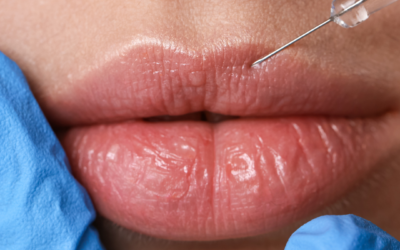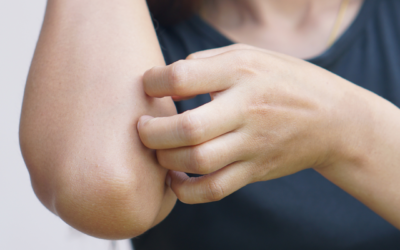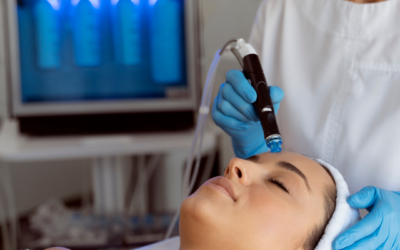
Have you heard someone mention they recently got a chemical peels, but have no clue what it is?
A chemical peel is a technique used to improve the appearance of the skin on the face, neck or hands. Performed in-office, a chemical peel is an outpatient procedure, meaning there is no overnight stay. A chemical solution is applied to the skin that causes it to exfoliate and eventually peel off, hence the name chemical peel. The new, regenerated skin is usually smoother and less dark and less wrinkled than it was prior to the peel.
Types of chemical peels
Prior to having a chemical peel, you will have a short consultation with your board-certified dermatologist to discuss the options and what will work best for your skin and the concerns you have.
1. Superficial or Lunchtime Peel
This type of peel uses an alpha-hydroxy acid or another mild acid to penetrate only the outer layer of the skin to gently exfoliate it. This form of chemical peel is used to improve the appearance of mild skin discoloration and rough skin, as well as refresh the face, neck, chest or hands. The recovery time for this is usually 1-2 days.
2. Medium Peel
This type of peel uses a glycolic or trichloroacetic acid to penetrate the outer and middle layers of skin to remove damaged skin cells. This form of chemical peel is used to improve age spots, fine lines and wrinkles, freckles and moderate skin discoloration. The recovery time for this peel is usually 2-5 days.
3. Deep Peel
This type of peel utilizes trichloroacetic acid or phenol to deeply penetrate the middle layer of the skin to remove damaged skin cells. The treatment, removes moderate lines, age spots, freckles, precancerous areas and shallow scars. Patients who receive this type of peel will see a dramatic improvement in their skin appearance, but will have a longer recovery time of 1-3 weeks.
Should I get a chemical peel?
A chemical peel is an excellent way to help treat acne scars, aging skin, crow’s feet, hyperpigmentation, melisma, scarring, sun damaged skin and wrinkles. The best candidates for chemical peels are generally light-haired and fair skinned people. Chemical peels do not work well on dark skinned patients.
If you have any of the following, it is also not recommended for you to get a chemical peel:
• Infection
• Active skin diseases
• Cut or broken skin
• Sunburns
• Nursing or pregnant
• Have taken Accutane in the last six months
• Psoriasis
• Eczema
• Dermatitis
• Rosacea
What can I expect from a chemical peel?
While chemical peels don’t cause a great deal of pain, you will notice some stinging, redness, irritation and scaling, or peeling, like you would experience with a sunburn. Your dermatologist will recommend a cream or lotion to apply regularly to the treated area.
Depending on which peel you received healing time will vary from one day to three weeks. Your dermatologist will give you specific instructions on how to handle your skin care and may request a follow-up appointment if he or she thinks it is necessary.
Skin Struggles?
If you are struggling skin issues and don’t know where to turn, the skin health experts at Forefront Dermatology are ready to help. To find the Forefront dermatologist nearest you, visit the locations page today.





